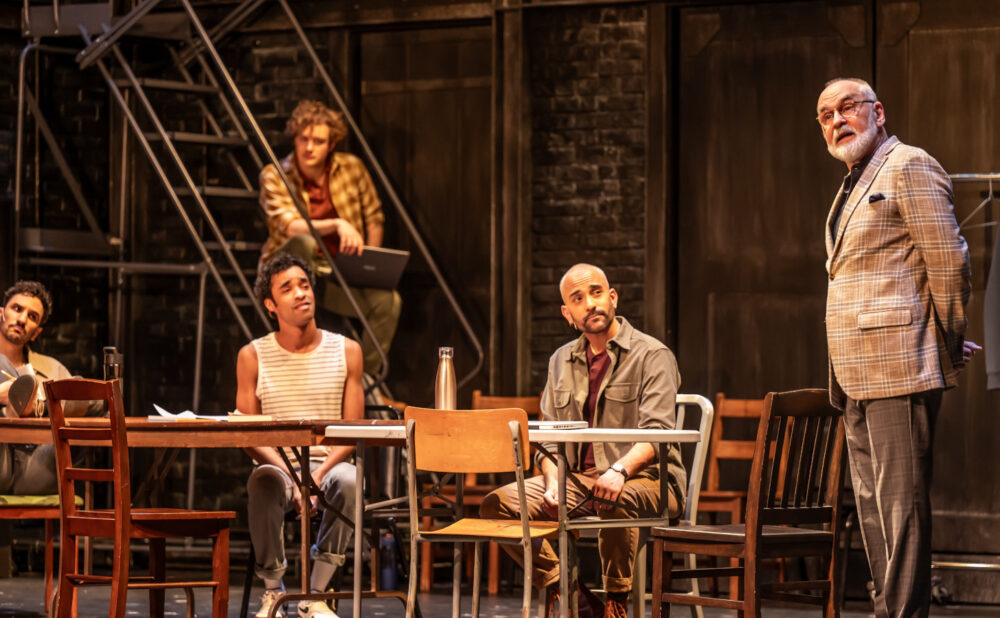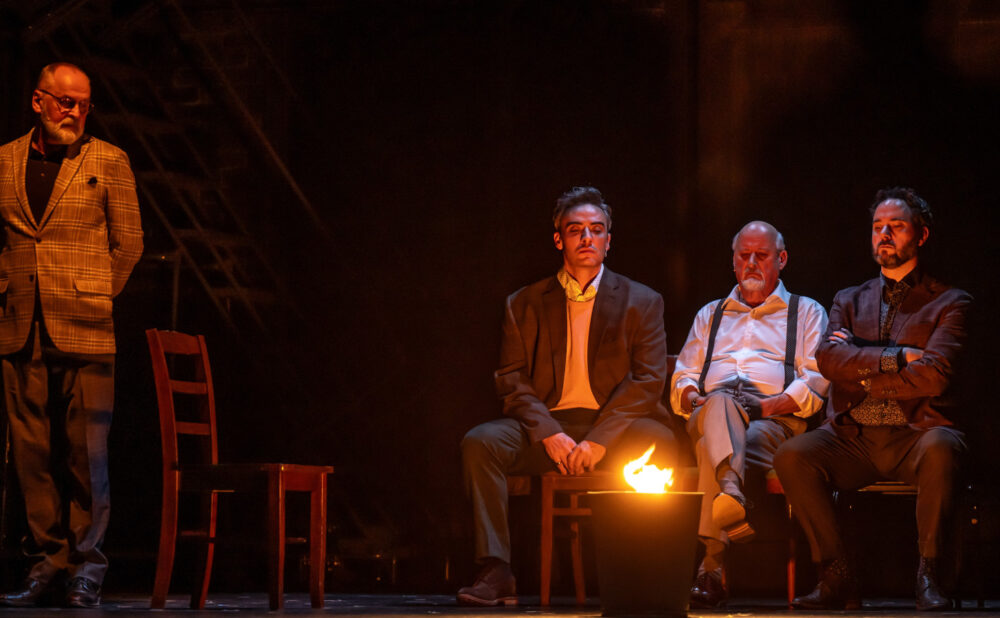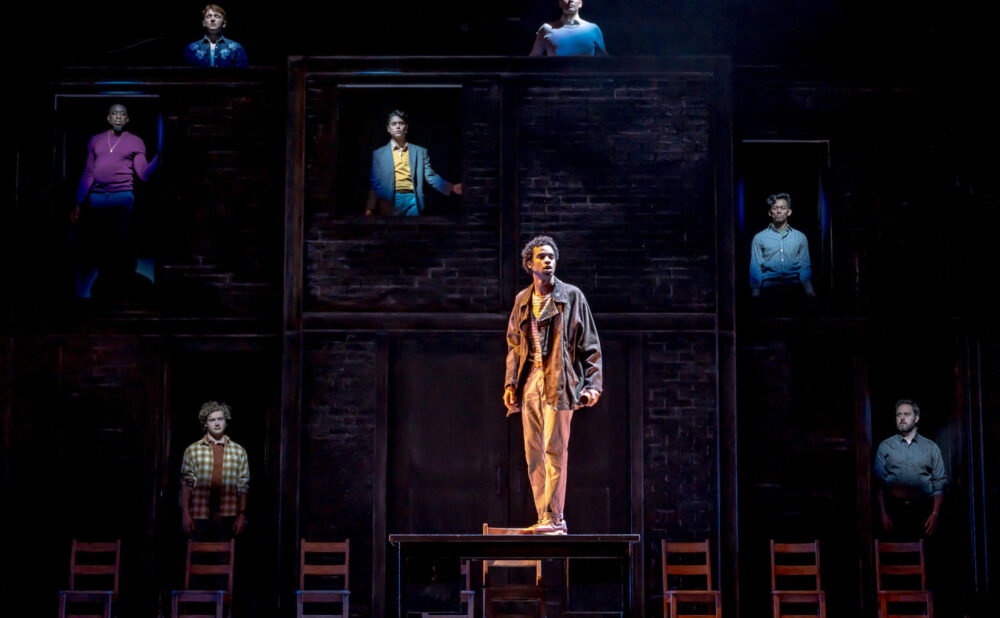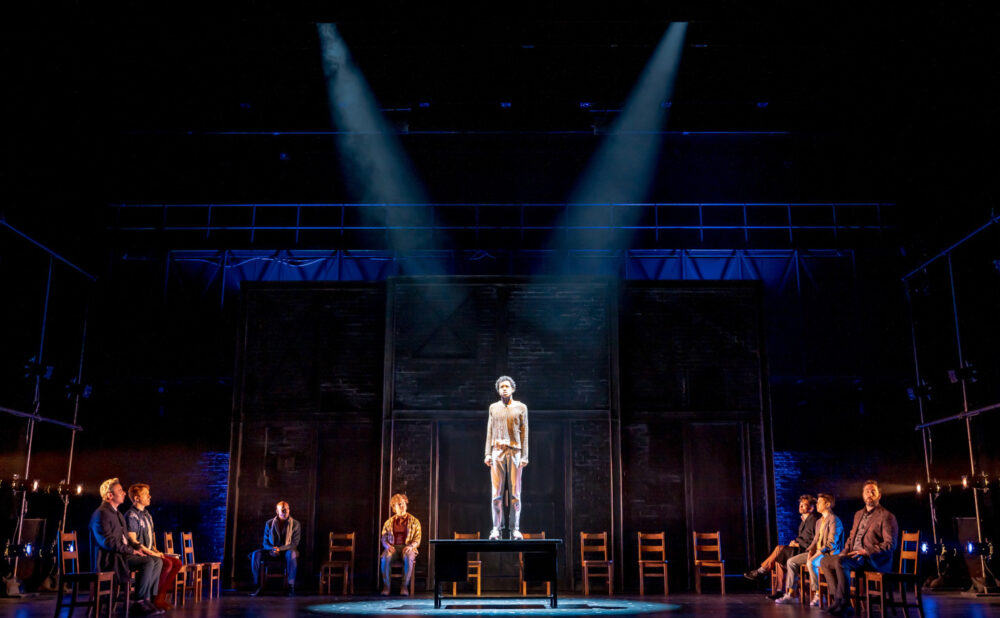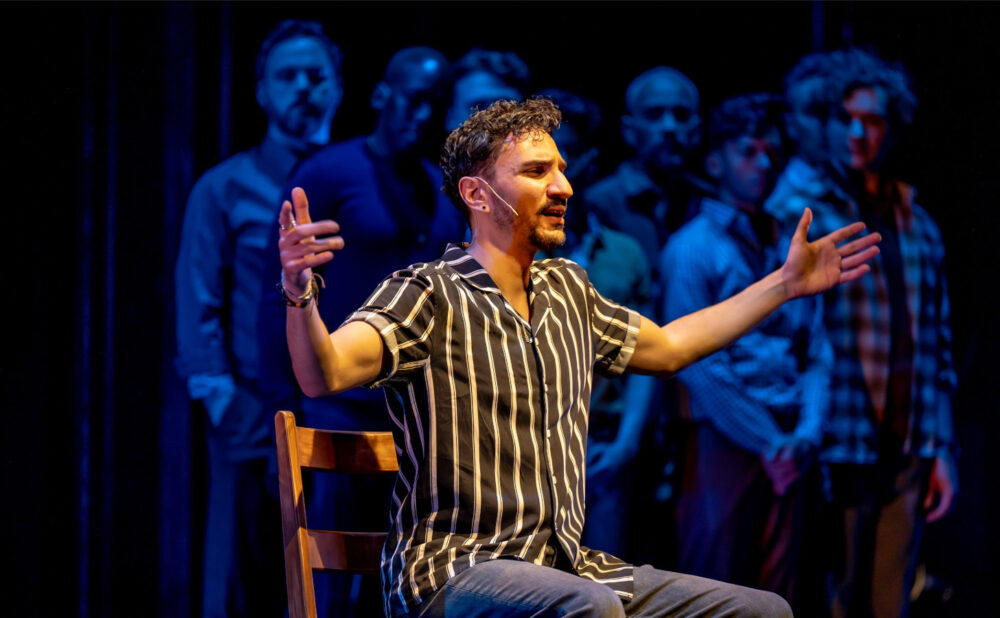Review: Canadian Stage’s ‘The Inheritance’ is something of a miracle
Six-and-a-half-hour epic should appeal to wide range of Torontonians
What: The Inheritance
Where: Bluma Appel Theatre, 27 Front St. E.
When: Now, until Sun., April 14
Highlight: A stunning set reveal designed by Michael Gianfrancesco
Rating: NNNN (out of 5)
Why you should go: It’s a gift to spend nearly half a day’s waking hours with sharp, rigorous theatre.
THE 867-SEAT Bluma Appel Theatre is where Canadian Stage swings big. Advertisements for the company’s original productions there — the energetic Choir Boy, the heavy Fall on Your Knees and the virtuosic The Lehman Trilogy, to name post-pandemic entries — smother social media and the subway. The aim, as I see it, is to put on shows in which commercial appeal and thoughtful craft intersect, attracting Torontonians who rarely attend the theatre.
The company’s latest, the Canadian premiere of The Inheritance, hits the bullseye of that admirable target. Matthew López’s Tony Award-winning 2018 reimagining of E.M. Forster’s Howards End runs six-and-a-half hours and is split into two parts, each with a pair of intermissions. In the age of Netflix, it’s tempting to label that kind of runtime daunting. But after seeing Canadian Stage artistic director Brendan Healy’s vivid production of this vigorous work, I no longer think such accusations fair. The opportunity to spend nearly half a day’s waking hours with sharp, rigorous theatre is a gift — who wouldn’t want their endless stream of disposable content interrupted by something a little more imposing?
The action begins in Manhattan in the summer of 2015. Thanks to rent control, the unpredictable Toby (Antoine Yared) and the literary Eric (Qasim Khan), a couple together seven years, occupy a luxurious three-bedroom apartment on the Upper West Side for the obscene price of $575 a month. But when Eric discovers eviction is imminent — and keeps that information from Toby, who relied on the cheap rent while writing his novel, Loved Boy — the information cleaves the couple in two, sending each barrelling toward opposite social worlds. (Previously, they’d spend their time discussing Ravel with a group of middle- to upper-class queer millennials.)
Toby falls in love with Adam (Stephen Jackman-Torkoff), who’s starring in the Broadway adaptation of Loved Boy — but because that fizzles, he ends up courting an impoverished sex worker named Leo, who resembles Adam, to say the least (he, also, is played by Jackman-Torkoff). And Eric grows close to bulldoggish billionaire Henry (Jim Mezon), husband of the incandescent Walter (Daniel MacIvor).
I hesitate to call López’s script overwritten since its length is in part what makes the show special, but several of the myriad monologues, often addressed directly to the audience, repeat information more times than necessary, spelling out their point to a frustrating degree. This is especially true in Part Two, during which the show’s framing device — young male writers brainstorming what should happen in the story, spurred on by occasional help from Forester himself (MacIvor with an English accent) — falls away almost entirely.
It’s something of a miracle, then, that Healy’s production moves as smoothly as it does. He teases out stage action where other directors might find none. The dramatic sequences burst with emotion. Yet the show’s comedy is what cements it as a hit, something special for our city: rarely in Toronto have I heard an audience of this size laugh with such consistent force.
The design, too, has significant elegance. A stunning late-game set reveal (designed by Michael Gianfrancesco) is the production’s flashiest element, the thing I left Part Two awed by, while Kimberly Purtell’s soft lighting is genius in a quieter way.
And Healy has cast the show adeptly. Jackman-Torkoff, Yared and Khan are the key triangle; they blaze about like arrows slicing air. Mezon uses his tectonic voice to erect walls around Henry that only Walter has the power to dismantle; speaking of, how special it is to have MacIvor in that role: his tender presence is light as snow. (This list is just the beginning, with Breton Lalama, Louise Pitre and more doing piercing work also.) These artists propel this robust and rewarding production, bringing startling clarity to its voyage through the tempestuous waters of López’s script.

